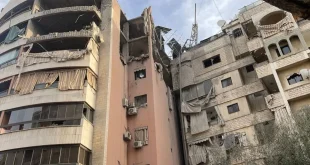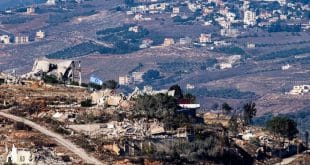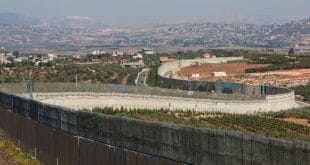سوريا على حافة تحول جذري: من المستفيد من التصعيد؟
شهدت الأيام القليلة الماضية تطورات دراماتيكية في المشهد السوري، حيث تصاعدت الأحداث في مدينة حلب شمال البلاد وامتدت إلى مدينة حماة وسط سوريا. هذه التحولات جاءت بعد تقدم “هيئة تحرير الشام” وفصائل مسلحة أخرى إلى مناطق كانت تحت سيطرة الحكومة السورية، مما يضع البلاد أمام معادلة جديدة قد تُحدث تغييرات جذرية على الأرض.
عودة التصعيد في حلب: ما الذي تغير؟
منذ استعادة الحكومة السورية السيطرة على حلب عام 2016، لم تشهد المدينة هجومًا بهذا الحجم. ومع دخول الفصائل المسلحة إلى بلدتي خناصر والسفيرة، واستعادة طريق حلب-دمشق (M5) ومطار كويرس في ريف حلب، أصبح الجيش السوري في موقف حرج بعد انسحابه من المدينة دون أي مقاومة تُذكر، وفقًا للمرصد السوري لحقوق الإنسان.
تصريحات نتنياهو وإسرائيل على الخط
تزامن التصعيد مع تصريحات لرئيس الوزراء الإسرائيلي بنيامين نتنياهو، الذي اعتبر أن سوريا قد تكون ساحة المواجهة المقبلة، خصوصًا فيما يتعلق بالوجود الإيراني. هذا التزامن أثار تكهنات حول دور إسرائيل في دعم هذا التصعيد غير المباشر، بهدف تقليص نفوذ طهران في سوريا والحد من التهديدات التي تمثلها الأسلحة الإيرانية المتقدمة.
الدور التركي: المصالح الإقليمية في الميزان
تأتي تركيا كلاعب رئيسي في هذا النزاع، حيث تسعى لدعم الفصائل المسلحة في إدلب وتوسيع نفوذها في الشمال السوري. الهدف التركي يتجاوز ذلك ليشمل إنشاء منطقة آمنة تعيد توطين اللاجئين السوريين على أراضيها، وهو مطلب استراتيجي يعزز أمنها القومي ويحد من تمدد النفوذ الإيراني.
الباحث السياسي مهند حافظ أوغلو يرى أن ما يجري قد يكون رسالة ضغط تركية على الحكومة السورية لإعادة تفعيل المفاوضات المتوقفة. وأوضح أن روسيا تضغط باتجاه تطبيع العلاقات بين البلدين، وهو أمر يعقده إصرار دمشق على شروط مثل انسحاب القوات التركية من الأراضي السورية.
انعكاسات السيطرة على حلب
إذا استمرت الفصائل المسلحة في تعزيز مواقعها في حلب، فقد يؤدي ذلك إلى تقويض النفوذ الحكومي بشكل كامل شمال سوريا. بحسب المرصد السوري، فإن السيطرة الحالية للفصائل المسلحة تشمل معظم المناطق، باستثناء بعض الأحياء التي تخضع لسيطرة القوات الكردية.
رسائل إلى الحلفاء
التطورات الأخيرة في سوريا لم تقتصر على الداخل السوري؛ فقد أثارت مخاوف لدى الحلفاء الرئيسيين للحكومة السورية، مثل روسيا وإيران والعراق. الردود من هذه الأطراف قد تحدد مستقبل الصراع وتوجهات الفصائل المعارضة في المرحلة المقبلة.
تحليل المرحلة المقبلة
مع استمرار الانسحابات العسكرية السورية والتقدم السريع للفصائل المسلحة، يبدو أن البلاد قد تدخل مرحلة جديدة من النزاع. الأطراف الإقليمية والدولية ترى في هذا التصعيد فرصة لإعادة رسم خارطة النفوذ على الأرض. وبالنسبة للحكومة السورية، فإن التحديات لم تعد محلية فقط، بل أصبحت تمتد إلى مصالح الحلفاء الذين قد يجدون أنفسهم مضطرين لإعادة النظر في استراتيجياتهم.
Syria on the Brink of Transformation: Who Stands to Gain?
Recent days have witnessed dramatic developments in Syria, particularly in the northern city of Aleppo, with spillovers into Hama in the central region. The entry of “Hay'at Tahrir al-Sham” (HTS) and other armed factions into areas previously controlled by the Syrian government signals a potential turning point in the ongoing conflict, reshaping the balance of power on the ground.
Escalation in Aleppo: A Shift in Control?
Since the Syrian government reclaimed Aleppo in 2016, the city has remained a stronghold. However, recent advances by armed factions have seen them take control of key areas such as Khanasir, Al-Safira, and the Aleppo-Damascus highway (M5), along with the Kuweires military airbase. The Syrian army’s unexpected withdrawal without resistance, as reported by the Syrian Observatory for Human Rights, has left the city vulnerable to a major shift in control.
Netanyahu’s Remarks: Is Israel Involved?
The escalation coincided with statements by Israeli Prime Minister Benjamin Netanyahu, who hinted that Syria might become the next front in Israel’s campaign, particularly against Iranian presence. This timing has raised speculation that Israel might be indirectly supporting the recent attacks to weaken Tehran’s influence in Syria and diminish the threat posed by advanced Iranian weaponry.
Turkey’s Strategic Interests
Turkey remains a pivotal player in the Syrian conflict, backing armed factions in Idlib and northern regions. Its primary goal appears to be the establishment of a safe zone to accommodate Syrian refugees, which also serves to secure its national borders and curb Iranian expansion.
According to political analyst Muhannad Hafiz Oglu, Turkey is sending a veiled message to the Syrian government, pressuring it to reconsider stalled negotiations. While Russia pushes for normalization between Ankara and Damascus, disagreements—particularly over Turkish troop withdrawals—have hindered progress. Hafiz Oglu suggests that a thaw in relations could stabilize border areas and limit the influence of groups like the Kurds and HTS.
Implications of Aleppo’s Fall
If armed factions consolidate their hold on Aleppo, it would mark a significant blow to the Syrian government, potentially altering the dynamics of power in the north. The Observatory indicates that while most areas are under opposition control, certain neighborhoods remain under Kurdish administration.
Messages to Allies
These developments resonate beyond Syria’s borders, raising alarms among allies like Russia, Iran, and Iraq. Their responses could influence the trajectory of the conflict, shaping strategies for both the Syrian government and opposition forces.
What Lies Ahead?
As the Syrian government faces rapid territorial losses, the country appears poised for a new phase in the conflict. Regional and international stakeholders see the recent escalation as an opportunity to recalibrate their influence. For Damascus, the challenge now extends beyond internal unrest to managing the strategic interests of its allies, whose long-term support may hinge on shifts in their own geopolitical priorities.
Translated by economyscopes team
المصدر: رصد موقع سكوبات عالمية إقتصادية
 سكوبات عالمية إقتصادية – EconomyScopes إجعل موقعنا خيارك ومصدرك الأنسب للأخبار الإقتصادية المحلية والعربية والعالمية على أنواعها بالإضافة الى نشر مجموعة لا بأس بها من فرص العمل في لبنان والشرق الأوسط والعالم
سكوبات عالمية إقتصادية – EconomyScopes إجعل موقعنا خيارك ومصدرك الأنسب للأخبار الإقتصادية المحلية والعربية والعالمية على أنواعها بالإضافة الى نشر مجموعة لا بأس بها من فرص العمل في لبنان والشرق الأوسط والعالم




